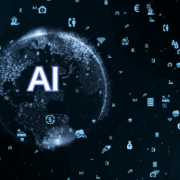Human Capital Management in the Age of (Agentic) AI
How all of HR will be upended by agentic AI
Let’s start by raising a glass to the human resources personnel who have stuck it out since January 2020, through a pandemic; quiet quitting; slashing layoffs, especially in the tech sector; and generative AI (GenAI) eliminating jobs. The hope now is for stability, for at least a few years, at which time digital full-time employees could shift from curiosity to commonplace.
TBR attended several tech conferences and analyst events in recent months, and AI was the inescapable topic at each one. In particular, KPMG’s Technology and Innovation Symposium in Deer Valley, Utah, stands out, in part because of the sheer breadth of opportunities discussed, use cases highlighted, and future hopes and fears laid out in stark detail. In our latest blog series, TBR on AI in 2025, we intend to connect those ideas with research and analysis conducted by TBR over the last few years to highlight implications for the companies we cover across the technology ecosystem. Topics will include how to talk to AI agents, who gets first and consistent access to limited resources like energy, and expectations for enterprise IT architecture in the agentic AI age.
In this blog, we analyze how human resources personnel and processes — really all of HR — will be upended by agentic AI.
Watch now: The Good, the Bad and the GenAI Opportunity in Cloud Ecosystems
Digital employees challenge HR models, creating opportunities for consultancies but hurdles for enterprises
Humans will get in the way of transformation in the agentic AI age. Full stop. As with all new, emerging technologies, resistance to change, inability to fully leverage new technologies and pure inertia will delay or prevent enterprises from transforming (or “reinventing”) with the assistance of AI-enabled solutions and tools. In particular, we expect:
- The vast majority of HR teams are not prepared to hire, manage, evaluate and fire digital employees. Digital full-time employees (FTEs) necessitate a reevaluation of HR, from processes and IT architectures to required skill sets. Consultancies and platform providers see opportunities, but HR professionals see change, change and more change.
- Everyone in the AI space talks about the “human in the loop,” but are humans ready for what that will mean in terms of day-to-day tasks and overall job performance (and satisfaction) as well as the constant change possible with the loop? It remains to be seen if a human in the loop will always result in a slow rollout of agentic AI.
- Consultancies enjoy advising on generational gaps in the workforce and offering retraining for employees being run over by emerging technologies, but AI, in particular agentic AI, may challenge even the most adept consultants and their abilities to support HR teams.
So, who benefits from agentic AI?
Consultancies, IT services companies, and the software companies selling platforms will see their markets expand while facing tremendous competitive pressure and decreased opportunities to differentiate. As TBR has repeatedly shown through its research and analysis, companies in the tech space that partner well, partner differently, and effectively leverage multiple partner arrangements will outperform peers. Transformation in the agentic AI age will prove this out again.
Fundamentally HR management remains a back-office function that IT services companies and consultancies can use to drive managed services engagements. And TBR’s research shows that managed services can lead to additional consulting opportunities, particularly when managed services providers (whether a traditional IT services company or consultancy) partners smartly with technology companies, leveraging the data and insights generated through back-office platforms to uncover issues and opportunities.
But what about employee experience? We all remember the first half of 2020, when every company extolled their employees’ virtues and invested in keeping their talent healthy and happy. That wore off, and now the remaining employees — and the HR professionals supporting them — must contend with agentic AI digital employees as well as rising confusion and spiking costs, for some companies, around H1-B visas. Whether hiring people or robots to manage other robots, what will remain most critical is recruiting and retaining the best HR people possible, because neither the problems nor the humans are going away.

 Getty Images via Canva Pro
Getty Images via Canva Pro Technology Business Research, Inc.
Technology Business Research, Inc. NinjaDesign via Canva Pro
NinjaDesign via Canva Pro